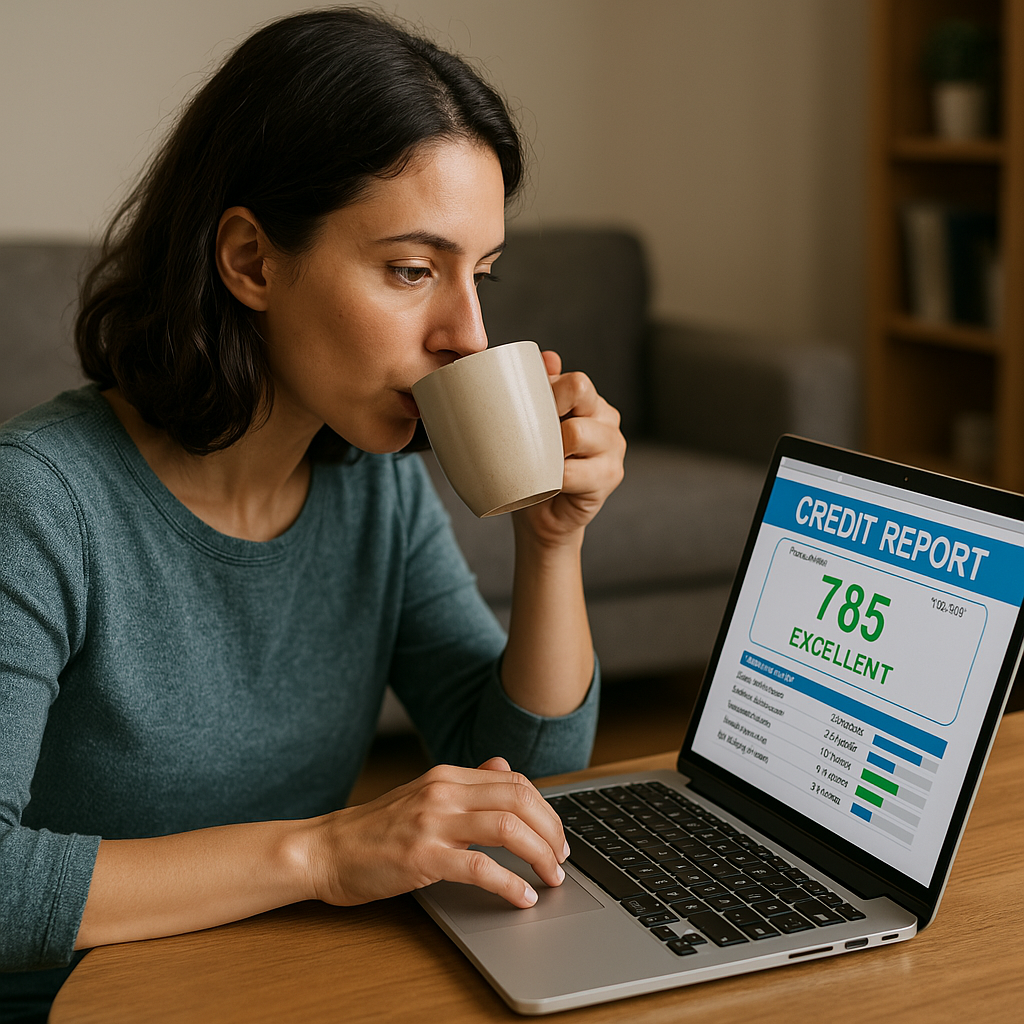Bridging the Credit Gap: How Responsible Subprime Lending Can Offer Lifelines and Build Financial Futures
In today’s complex financial ecosystem, access to credit plays a pivotal role in economic participation and mobility. While prime borrowers often have a variety of financing options at their fingertips—ranging from low-interest credit cards to personal loans from traditional banks – subprime borrowers which make up a significant segment of the population remain underserved. These are individuals with limited, damaged, or no credit histories who often find themselves excluded from mainstream financial services. For them, subprime short-term and installment lending products are not just convenient – they’re essential.
Understanding Subprime Borrowers
Subprime borrowers typically have credit scores below 620, a threshold that makes traditional lenders wary of offering credit. The reasons for subprime status vary; some may be young adults with no established credit history, others might be recovering from past financial setbacks such as medical debt, job loss, or divorce. What unites them is a shared challenge in accessing affordable and timely credit.
Without viable lending options, these individuals are often forced to choose between nonpayment of essential expenses—like rent, utilities, or medical bills—and pursuing credit from informal or predatory sources. Subprime short-term loans and installment products can bridge that gap responsibly.
Why Subprime Lending Products Matter
- Emergency Financial Relief
Many Americans live paycheck to paycheck. According to recent surveys, nearly 60% of U.S. adults would struggle to cover an unexpected $500 expense. In this context, subprime short-term loans offer a critical lifeline. Whether it’s a car repair needed to get to work or an unexpected medical bill, having access to even a small amount of credit can prevent spiraling consequences.
- Pathway to Financial Inclusion
Responsible subprime lending, especially when tied to reporting to credit bureaus, can serve as a steppingstone to better financial health. When structured with affordable payments and transparent terms, installment loans allow borrowers to rebuild credit profiles, gain trust with lenders, and eventually access more favorable financial products.
- Flexible Lending for Diverse Needs
Unlike payday loans that require full repayment at once, installment loans spread repayment over weeks or months, making them more manageable. This flexibility accommodates the varied cash flow patterns of hourly workers, gig economy participants, and others with irregular income.
- An Alternative to Predatory Lending
In the absence of regulated subprime lending, unregulated options proliferate—pawn shops, loan sharks, or exploitative payday products with triple-digit APRs. Providing better-regulated, transparent alternatives with consumer protections not only addresses immediate needs but also helps steer borrowers away from debt traps.
Addressing the Criticisms
Subprime lending often faces scrutiny due to its higher interest rates. But these rates reflect the greater risk and cost associated with lending to individuals with poor credit. That said, there is a legitimate need to ensure ethical practices: clear disclosures, fair repayment terms, caps on rollovers or refinancing, and strong underwriting standards.
Innovations like income-based repayment structures, financial literacy tools, and tech-enabled credit assessments can further improve the sector. Regulatory frameworks must strike a balance between guarding against abuse without choking off access for the very people who need it most.
Conclusion
Subprime short-term and installment lending products, when designed responsibly, serve a vital role in modern financial systems. They provide a safety net, promote credit-building, and offer a regulated alternative to harmful lending practices. As the financial industry evolves, expanding access to fair and flexible subprime credit isn’t just good business – it’s good public policy. A more inclusive financial system begins with meeting people where they are and giving them the tools to move forward.
Troy Funk, Business Development
Midwest Fidelity Services, LLC
How Our Collection Process Respects People and Protects Relationships
By Troy Funk|2025-10-29T14:10:32+00:00October 29th, 2025|Categories: Compliance, Finance, Fintech Lending, Subprime Lending|Tags: Accounts Receivables, Alternative Credit, Collection Agency, Credit, Credit Bureau Reporting, Credit Report, Fintech Lending, short term lending, subprime|
At Midwest Fidelity Services, we believe successful debt recovery [...]
The Need for Subprime Short-Term and Installment Lending Products
By Troy Funk|2025-04-16T15:42:37+00:00April 16th, 2025|Categories: Finance, Fintech Lending, Subprime Lending|Tags: Accounts Receivables, Alternative Credit, Collection Agency, Credit, Credit Bureau Reporting, Credit Report, Fintech Lending, short term lending, subprime|
In today’s complex financial ecosystem, access to credit plays [...]
Ghosted by the Consumer: How Digital Habits Are Redefining Communication
By Troy Funk|2025-04-10T15:30:37+00:00April 10th, 2025|Categories: Finance, Fintech Lending, News, Trends|Tags: Accounts Receivables, Alternative Credit, Collection Agency, Credit, Credit Bureau Reporting, Credit Report|
In today’s digital-first world, the way businesses reach consumers [...]
The Declining Impact of Delinquent Account Reporting
By Troy Funk|2025-03-31T19:28:30+00:00March 31st, 2025|Categories: Finance, Fintech Lending, News|Tags: Alternative Credit, Credit, Credit Bureau Reporting, Credit Report|
In the past, a delinquent account reported to the [...]
The Compliance-Minded Collection Agency
By Troy Funk|2025-03-25T13:39:19+00:00March 25th, 2025|Categories: Compliance, Finance, Fintech Lending, News|
For any reputable collection agency, compliance shouldn’t be just [...]
What AI Brings to the Table In 2025 For the Debt Collection Agency
By Troy Funk|2025-02-28T16:51:31+00:00February 28th, 2025|Categories: Finance, Trends|
Revolutionizing Recoveries: How AI is Transforming Debt Collection Strategies AI [...]
Things to Consider When Dealing with Unpaid Invoices for Your Small Business
By MidwestCollectors106|2020-10-27T16:24:57+00:00October 27th, 2020|Categories: Finance, News|
Dealing with past due invoices is part of any [...]
Helpful Tips On How To Collect On Delinquent Accounts
By LuisB2B|2020-03-12T02:00:52+00:00March 12th, 2020|Categories: Uncategorized|
Is there a way to collect on delinquent accounts without [...]
Tips to Keep Your Accounts Receivable Ahead of Your Accounts Payable
By LuisB2B|2020-03-12T01:57:41+00:00March 12th, 2020|Categories: Uncategorized|
It’s a common practice amount businesses, big and small, [...]
Is BIGGER Always BETTER When Choosing A Collection Agency?
By LuisB2B|2020-03-12T01:54:40+00:00March 12th, 2020|Categories: Uncategorized|
It’s like anything else I guess. Human nature to gravitate [...]
Tips For Hiring A Debt Collections Agency
By LuisB2B|2020-03-12T01:51:29+00:00March 12th, 2020|Categories: Uncategorized|
Being a business owner is not easy. You have [...]
5 Debt Collection Tips You Must Know About
By LuisB2B|2020-03-12T01:48:03+00:00March 12th, 2020|Categories: Uncategorized|
Almost every business owner comes across a difficult debtor at [...]
Need Help Collecting Debt? Read This!
By LuisB2B|2020-03-12T01:42:58+00:00March 12th, 2020|Categories: Uncategorized|
There are situations where a business has exhausted [...]
Why You Need To Hire A Reputable Debt Collection Agency
By LuisB2B|2020-03-12T01:38:35+00:00March 12th, 2020|Categories: Uncategorized|
When it comes to the debt collection process there [...]
The Debt Collection Process – Part 1
By LuisB2B|2020-03-12T01:19:17+00:00March 12th, 2020|Categories: Uncategorized|
When it comes to the debt collection process there [...]














